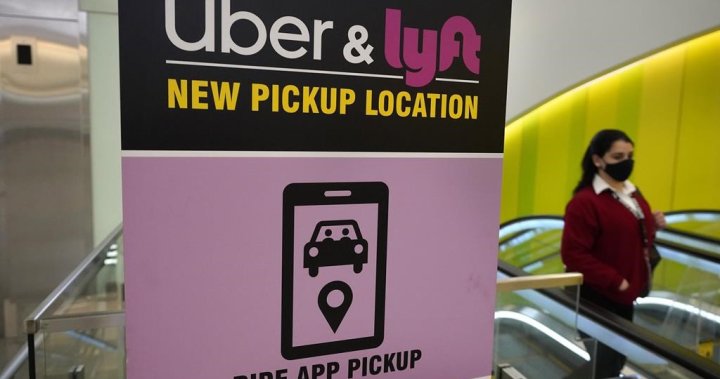In a recent video that went viral on social media, a woman shared her emotional experience using a rideshare app where she was allegedly stranded in Toronto after a Lyft driver asked her for money for a long-distance trip. This incident sparked a wave of responses from female rideshare users who shared similar experiences. The woman, who wished to remain anonymous, tearfully recounted her ordeal of being stranded at 3 am and feeling vulnerable in the back of a stranger’s car with no way of tracking her location. This was the second time she had been asked for money by a Lyft driver for a long-distance trip, leading her to question the safety and security measures of rideshare apps.
Rideshare apps like Lyft and Uber have location sharing and tracking measures built into their apps, which are disabled once a ride is cancelled. This lack of tracking and monitoring capabilities can leave users feeling exposed and vulnerable, especially in late-night or long-distance trips. Many women who commented on the viral video shared similar experiences of being threatened to have their rides cancelled if they did not pay cash or transfer the fare directly to the driver. These incidents raise serious safety concerns for female rideshare users who rely on these services for transportation.
Adeba Siddiqui, another rideshare user, shared her own experiences of being asked to pay cash by drivers, especially during late-night or long-distance trips. Siddiqui emphasized that these situations have put her in uncomfortable and unsafe positions, as the rides are stopped, and there is no way to track the journey or ensure safety. Henrietta Francis also expressed concerns about low wages driving this behavior among rideshare drivers, where they ask for additional cash or e-transfers to supplement their income. Francis recounted a scary incident where a driver became aggressive when she refused to pay extra, leaving her feeling scared and uncomfortable.
The incidents of drivers asking for extra cash or e-transfers appear to be a widespread issue among rideshare users, with many sharing similar stories of feeling unsafe and threatened during their rides. Some users, like Marnie Gallop, have reported instances where drivers insisted on additional payments for services that were not agreed upon or necessary. While Lyft and Uber have strict policies prohibiting cash exchanges and encourage users to report violations, there are concerns about whether enough action is being taken to address these incidents. The lack of response from these companies to such reports raises questions about the effectiveness of their safety protocols and the protection of their users.
Overall, the experiences shared by these women highlight the vulnerability and safety risks faced by female rideshare users when confronted with demanding or aggressive drivers. These incidents bring attention to the need for improved safety measures and protocols within rideshare apps to protect users from such uncomfortable situations. By addressing these issues and taking concrete actions to prevent drivers from engaging in such behavior, rideshare companies can ensure a safer and more secure experience for all their users, especially women who rely on these services for their transportation needs.













